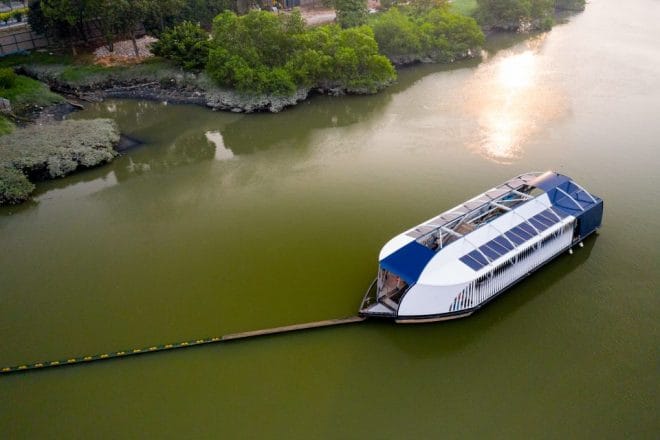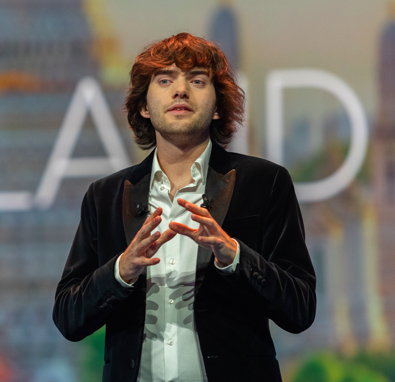It’s a plastic-guzzling river barge
This floating plastic collection barge cruises the world’s most polluted rivers to rid them of plastic.

This floating plastic collection barge cruises the world’s most polluted rivers to rid them of plastic.
It was developed by The Ocean Cleanup, a not-for-profit founded seven years ago by (then) teenage Boyan Slat, a Dutch inventor and entrepreneur.

The first prototype was piloted in 2016, and its creators say the system now grabs plastic debris from the Great Pacific Garbage Patch – the largest accumulation zone of plastic in the world’s oceans floating between the West Coast of North America and Japan.
Now the Ocean Cleanup has 1,000 of the world’s most polluting rivers in its sights, which are thought to be responsible for about 80% of ocean plastic pollution.
“To truly rid the oceans of plastic, we need to both clean up the legacy and close the tap, preventing more plastic from reaching the oceans in the first place,” says Boyan. “Combining our ocean cleanup technology with the Interceptor, the solutions now exist to address both sides of the equation.”
The tech
The system is anchored to the riverbed and uses the natural flow of the river to catch the plastic and is designed for autonomous operation 24 hours per day. A floating barrier directs the garbage into the system so as not to interfere with other vessels or harm the safety or impede the movement of wildlife.The solar-powered Interceptor is capable of extracting up to 100,000 kg of garbage per day and four Interceptors have been built so far, with two systems now operating in Jakarta, Indonesia and Klang, Malaysia. A third system will soon be cleaning up in Can Tho in the Mekong Delta in Vietnam, and two more are planned, one in Santo Domingo in the Dominican Republic, and the other to be situated near Bangkok in Thailand.
Is it ready to roll?
It is running and in the process of scaling up with plans to target the 1,000 most-polluted rivers over five years.
Who funds it?
The company’s operations, which cost $US43 million per year, have been crowdfunded since 2013.





